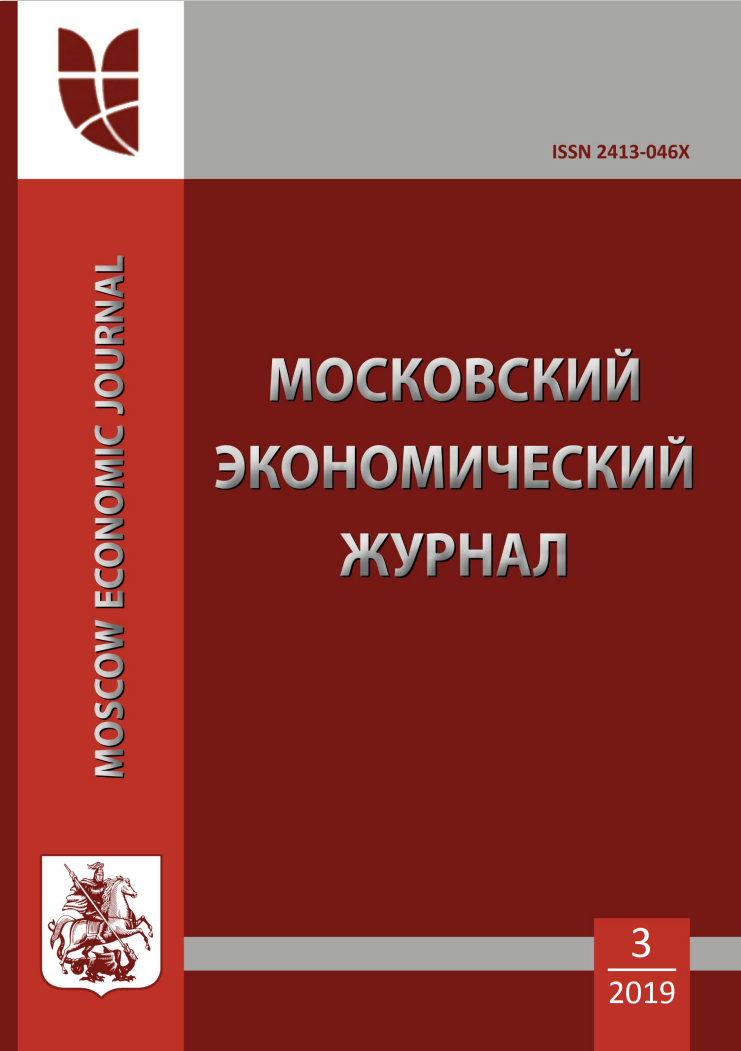Russian Federation
Importance. Today, the impact of external factors on the activities of organizations plays a key role. In this regard, the prediction of these factors and, naturally, getting used to them are one of the most important aspects for the successful running of a business. Thus, relationships governing the process of building a business ecosystem, innovations in the modern business environment are observed in this article. Objectives. Based on the results of advanced research of domestic and foreign specialists in the field of modern business, to consider the theoretical aspects of developing a strategy for building a business ecosystem of a large company. Methods. The research involves such methods as selection, study and analysis of the literature, documents, method of comparative analysis, tabular method, analogy strategy, evolutionary approach and the theory of complex adaptive systems. Results. Using the basic properties of natural ecosystems can significantly reduce the complexity of the adaptation process, form the right attitude to innovation and cooperation, thereby enhancing the resilience of both an individual company and the business ecosystem as a whole. The scope of the results. As a result of using the method of analogies, a quite obvious parallel between the processes occurring in nature and the processes in the business environment becomes obvious. This makes it possible to apply the laws of the origin, functioning and development of the ecosystem to establish relationships that govern the processes of building business ecosystems for further study, systematization, development, prediction and practical application of these processes, the discovery of new technologies and new ways of using them in education, health care, transportation, changing with them the production and consumption systems provide a chance not only to increase efficiency and reduce costs, but also to restore and preserve the environment, to provide primary human needs. Conclusions and Relevance. To ensure the growth and existence of organizations, the formation of business ecosystems is currently the most productive, which requires knowledge of the growth directions of the economic and financial aspect, understanding and applying on practice the rules of the viability of the business ecosystem and the new preferences to them.
innovation, business ecosystem, forecasting, adaptation of organizations, resilience of the company
1. Batyrova N.S. Metodologicheskie osnovy razrabotki i realizacii strategii ustoychivogo razvitiya hozyaystvuyuschego sub'ekta // Ekonomicheskiy analiz: teoriya i praktika. 2014. T. 13. № 44. S. 14-25.
2. Lapshin V.S., Gorbunova N.V. Mehanizm formirovaniya sistemy ustoychivogo razvitiya predpriyatiya // Nacional'nye interesy: prioritety i bezopasnost'. 2015. T. 11. № 36. S. 30-44.
3. Dem'yanova O.V., Ishkova E.I. Osobennosti formirovaniya strategii ustoychivogo razvitiya predpriyatiya v usloviyah sovremennogo krizisa // Finansy i kredit. 2017. T. 23. № 6. S. 310-319.
4. Lyubushin N.P., Babicheva N.E., Usachev D.G., Shustova M.N. Genezis ponyatiya «ustoychivoe razvitie ekonomicheskih sistem razlichnyh ierarhicheskih urovney» // Regional'naya ekonomika: teoriya i praktika. 2015. T. 13. № 48. S. 2-14.
5. Zinina L.I., Haritonova Yu.S. Formirovanie sistemy organizacionno-ekonomicheskogo obespecheniya ustoychivogo razvitiya territorii // Nacional'nye interesy: prioritety i bezopasnost'. 2017. T. 13. №4. S 604-614.
6. Pavel'ev N.A. Metodika rascheta koefficienta ustoychivosti razvitiya regiona // Ekonomicheskiy analiz: teoriya i praktika. 2011. T. 10. №29. S. 502-515.
7. Endovickiy D.A., Panina I.V., Pankratova M.V. Analiz suschnosti korporativnoy ustoychivosti kak reakcii na civilizacionnye izmeneniya // Ekonomicheskiy analiz: teoriya i praktika. 2017. T. 16. № 6. S. 1043-1060.
8. Vasenko V.E. Opredelenie urovnya razvitiya regiona na osnove metodiki ocenki ustoychivogo razvitiya // Regional'naya ekonomika: teoriya i praktika. 2013. T. 11. № 1. S. 210-215.
9. Mercan B., Goktas D. Components of Innovation Ecosystems: A Cross-Country Study // International Research Journal of Finance and Economics. - 2011. - No. 76. -P. 102-112.
10. Durst S., Poutanen P. Success factors of innovation ecosystems: Initial insights from a literature review. // CO-CREATE, 2013: The Boundary-Crossing Conference on Co-Design in Innovation. - Aalto University, 2013. - P. 27-38.
11. Mironova E.A., Smirnova N.M. Social'noe predprinimatel'stvo: faktory, vliyayuschie na razvitie // Social'no-ekonomicheskie preobrazovaniya i problemy: sb. nauch. tr.- Nizhniy Novgorod: NISOC, 2015. - Vyp. 5. - S. 63-80.
12. Trudgill S. Tansley, A.G. The use and abuse of vegetational concepts and terms. // Ecology. -1935.- №16. - R. 284-307. In: Progress in Physical Geography. - October 2007, - Vol. 31, - No. 5. - P. 517-522.
13. Osadchenko T.N. Kompleksnye adaptivnye sistemy: osnovnye ponyatiya i svoystva // Mezhdunarodnyy nauchnyy zhurnal «Innovacionnaya nauka». - 1/2016. -№. 3. - S. 55-60.
14. Doroshenko S.V., Shelomencev A.G. Predprinimatel'skaya ekosistema v sovremennyh socioekonomicheskih issledovaniyah // Zhurnal ekonomicheskoy teorii. -2017. - №4. - S. 212-221.
15. Dezhina I., Kovnir E., Suetin N., Tormasov A. Analiticheskiy obzor rynka robototehniki. M.: Laboratoriya robototehniki Sberbanka, PAO «Sberbank», aprel' 2018. - S. 13-46.
16. Hayden E.C. Technology: The $1,000 genome // Nature. - 2014.- R. 294-295.
17. Shvab K. Chetvertaya promyshlennaya revolyuciya. M.: Izdatel'stvo «E», 2016. -S. 4.
18. Turchin A.V. Futurologiya. XXI vek: bessmertie ili global'naya katastrofa? / A.V. Turchin, M.A. Batin. M.: BINOM. Laboratoriya znaniy, 2013.
19. Akhmetshin E.M., Artemova E.I., Vermennikova L.V., Shichiyakh R.A., Prodanova N.A., Kuchukova N.M. Management of investment attractiveness of enterprises: Principles, methods, organization // International Journal of Applied Business and Economic Research. - 2017. -Vol. 15. -No. 23. -R. 71-82.
20. Koch V., Kuge S., Geissbauer R., Schrauf S. Industry 4.0: Opportunities and challenges of the industrial internet. Strategy&, part of the PwC network, 2014. - 280 r.
21. Rothschild M. Bionomics. Economy as Ecosystem. NY.: Henry Holt and Company Inc., 1990. 423 r.
22. Guseynov A.A. «Zolotoe pravilo» v istorii etiki / Social'naya priroda nravstvennosti. M.: MGU, 1974.











